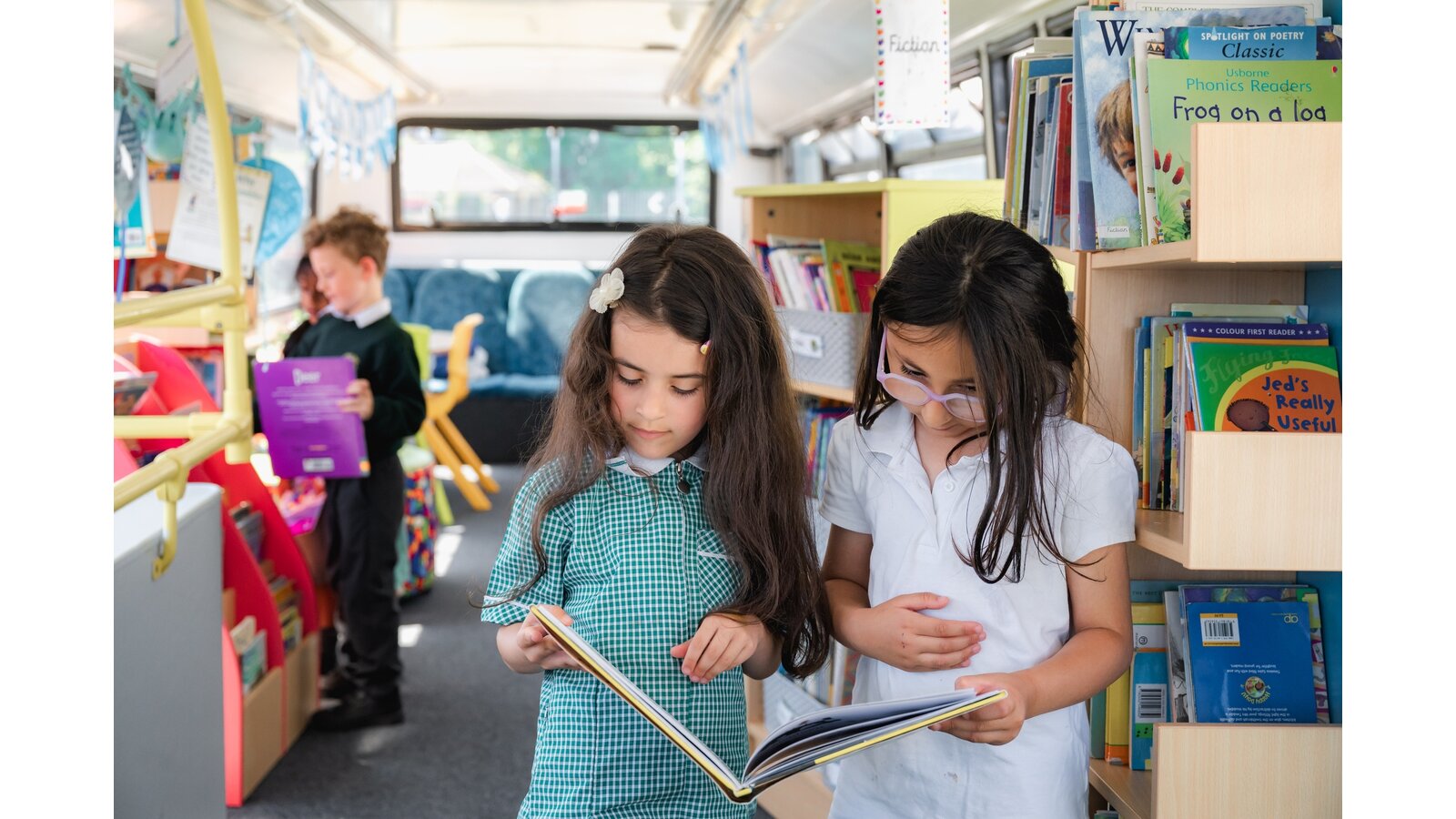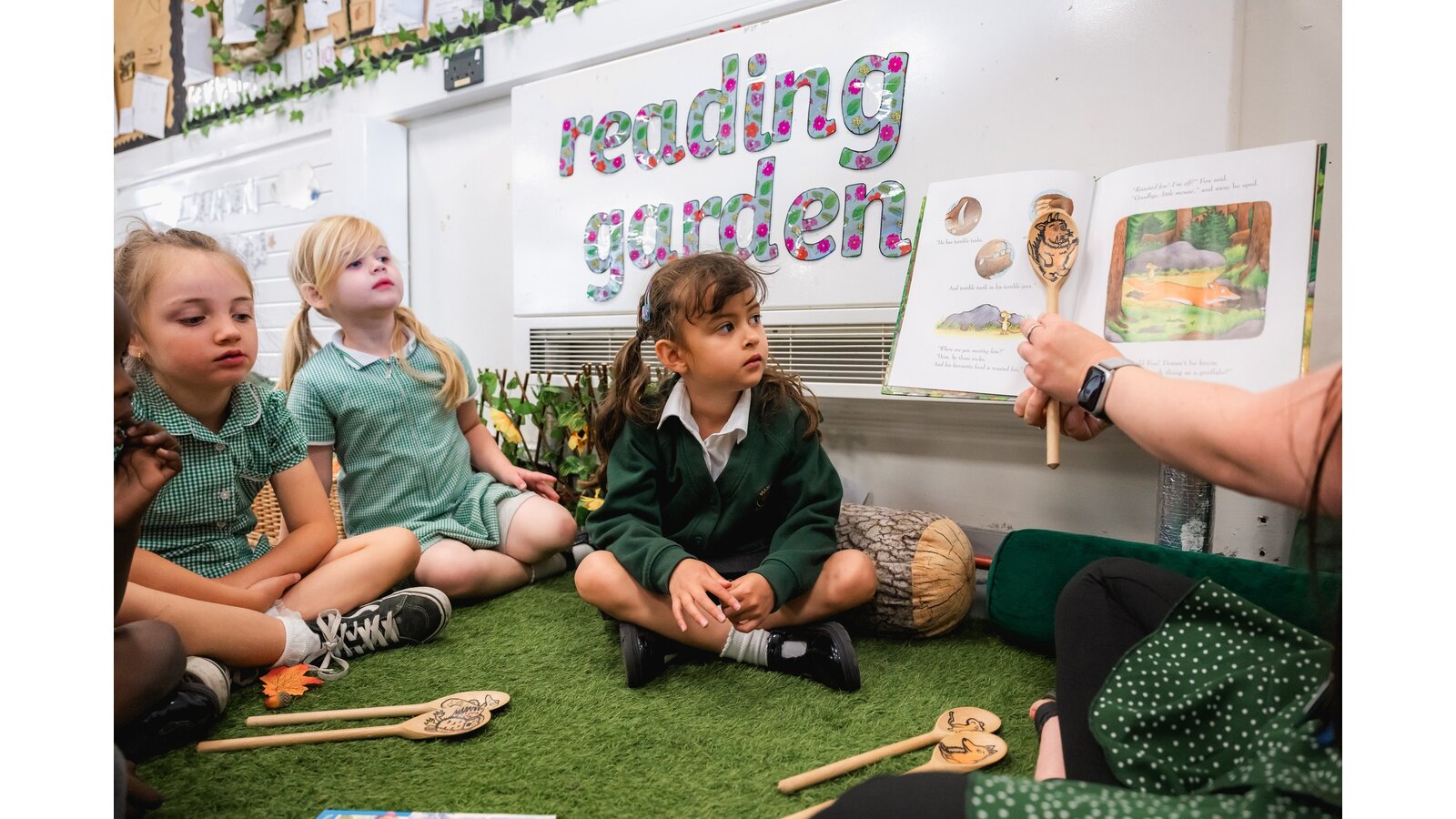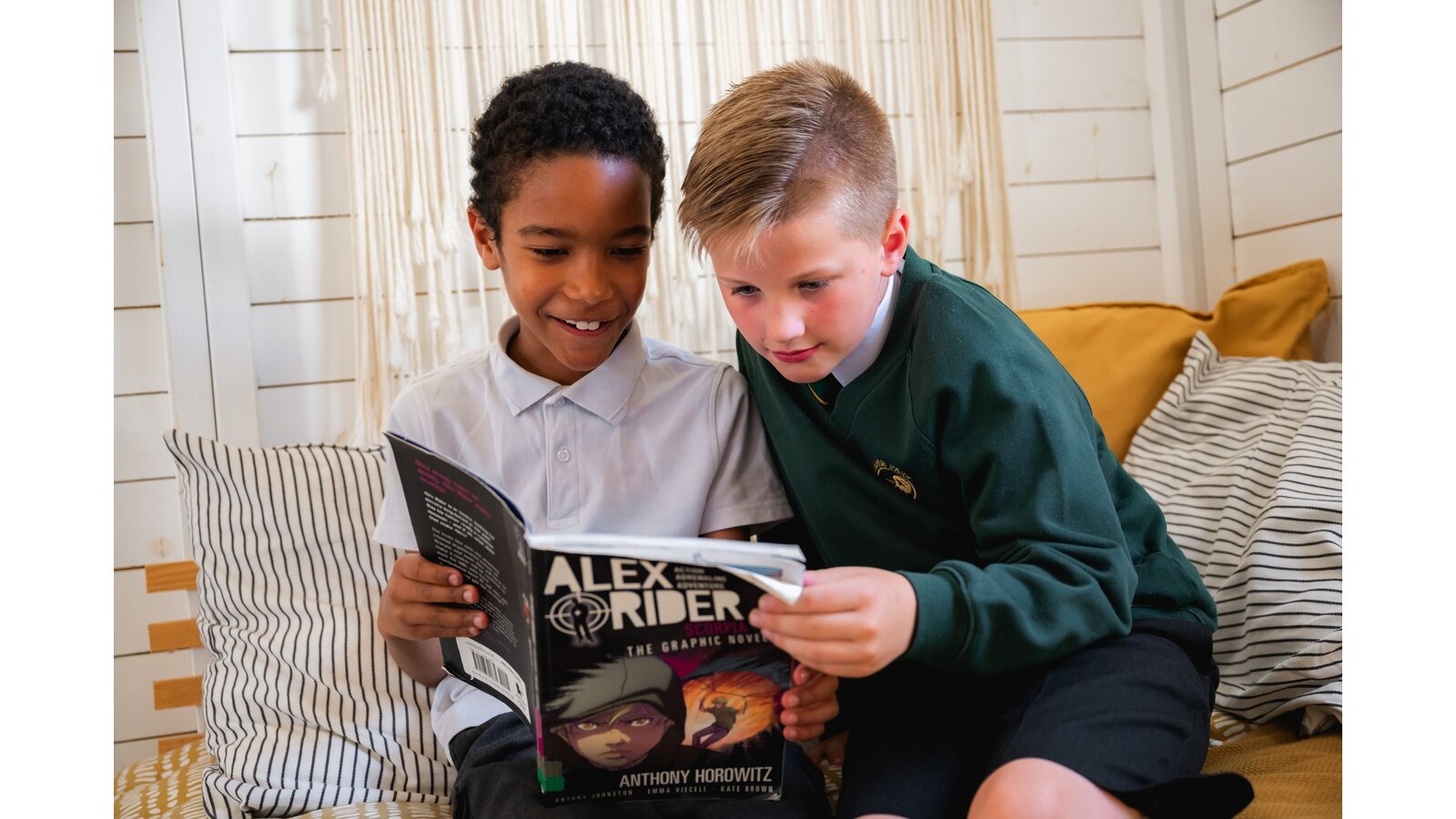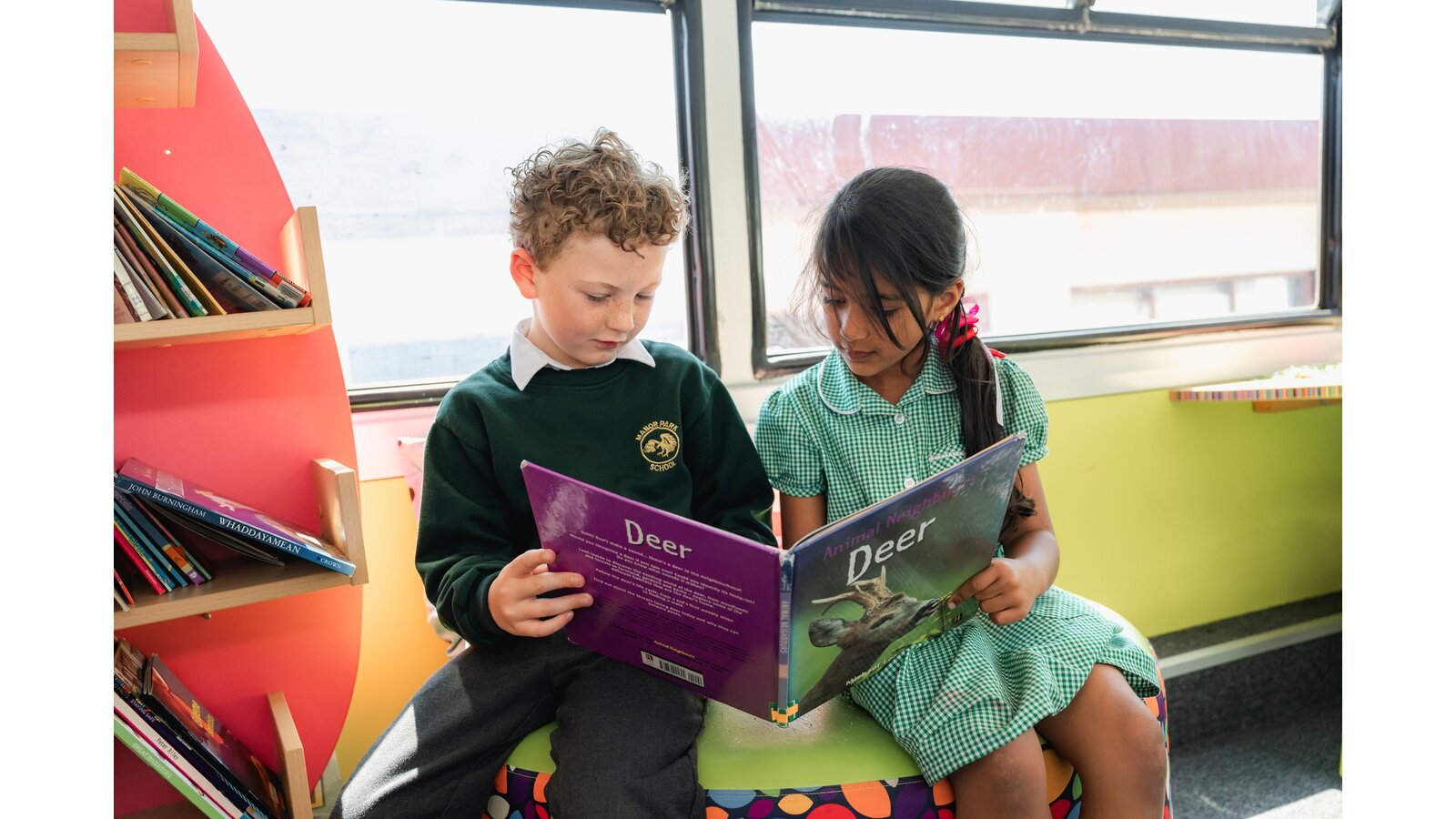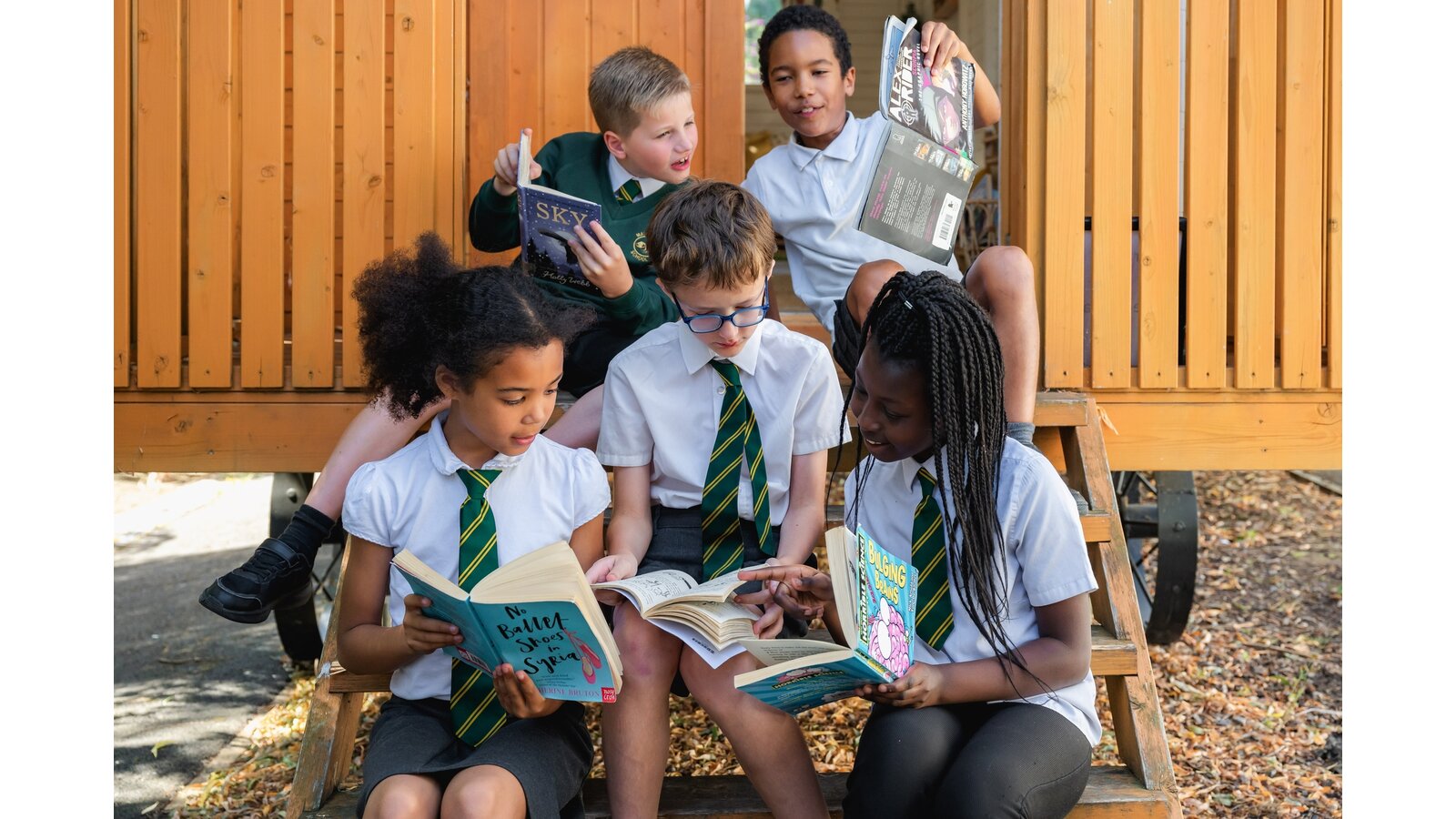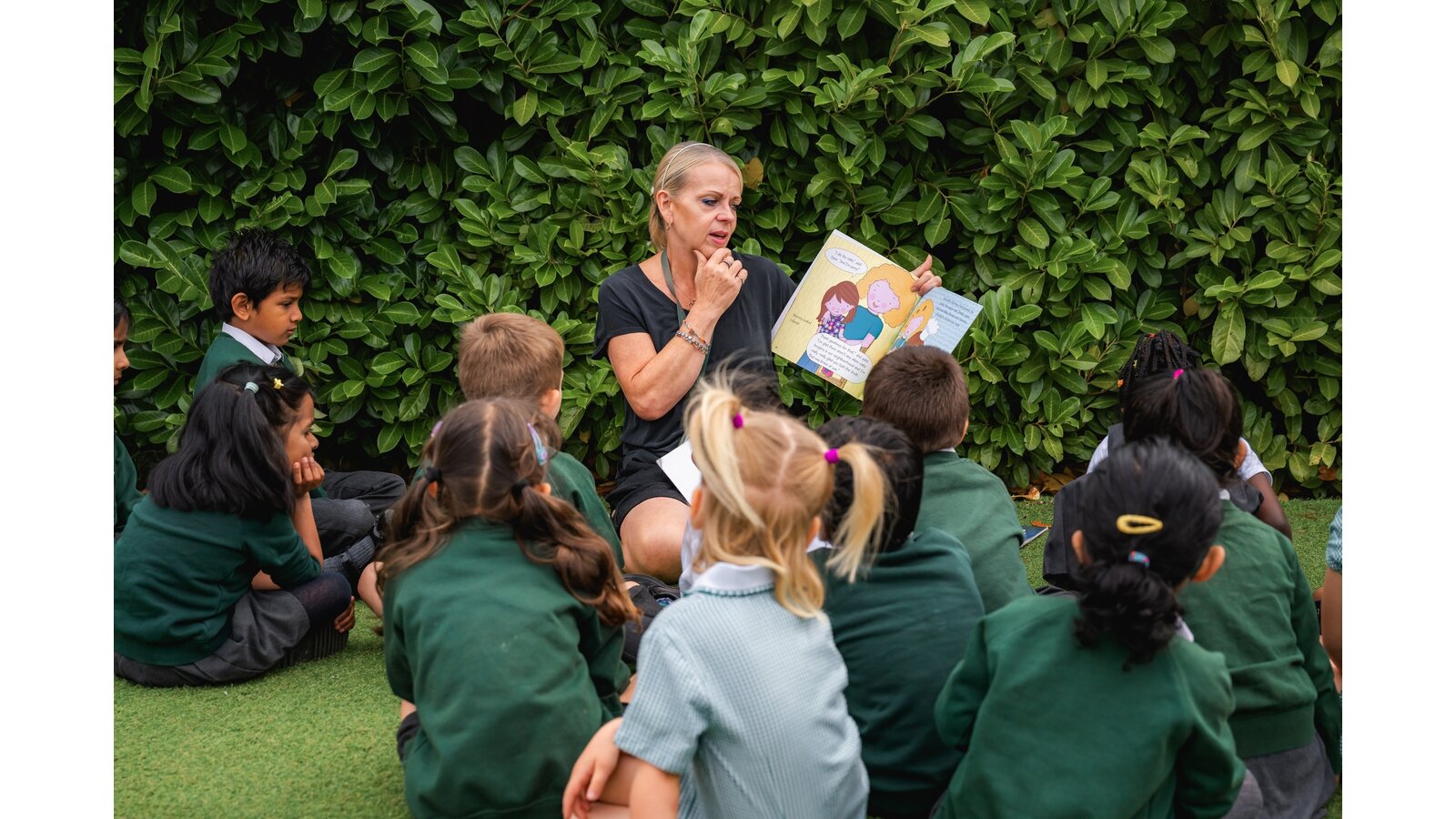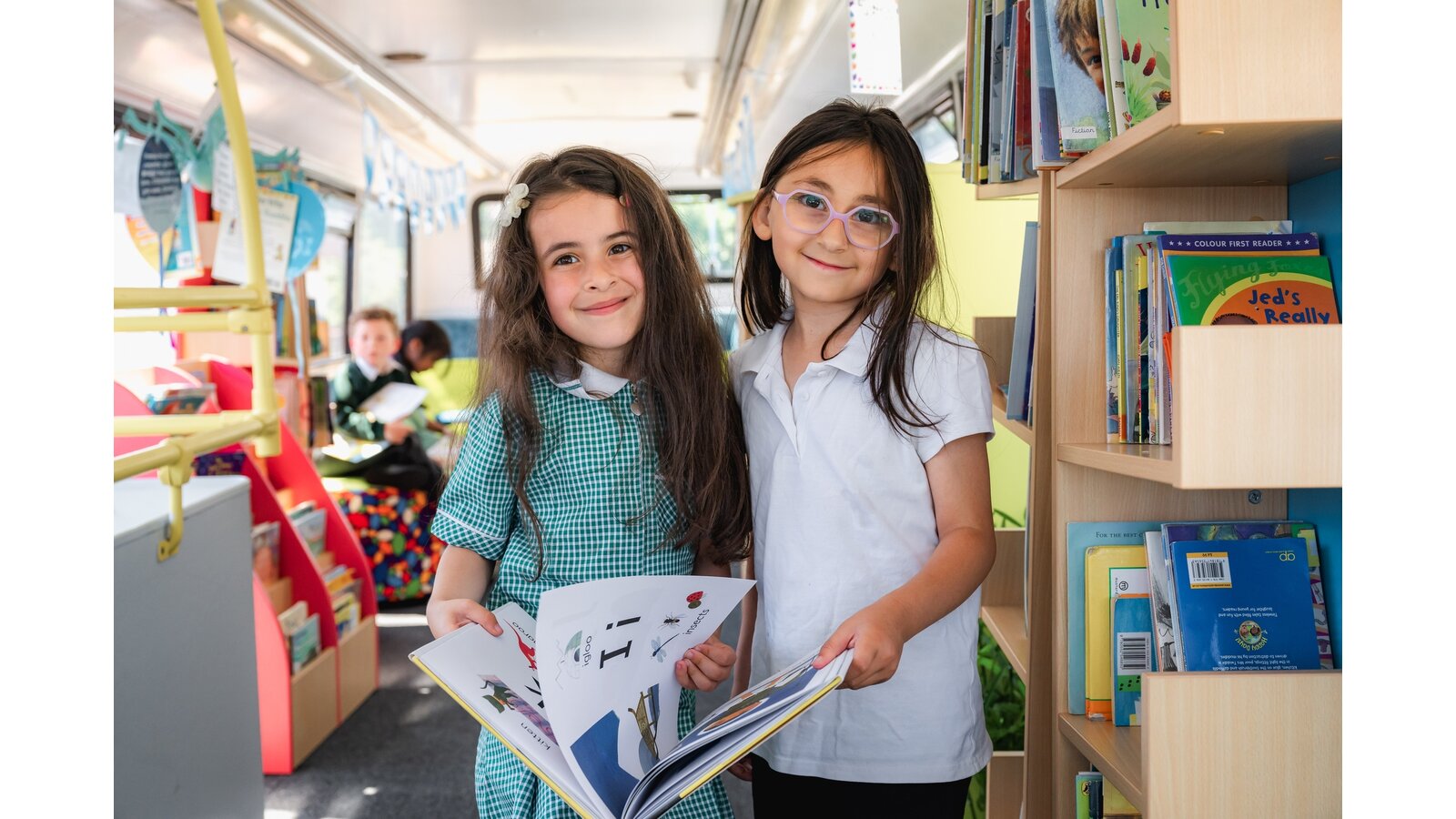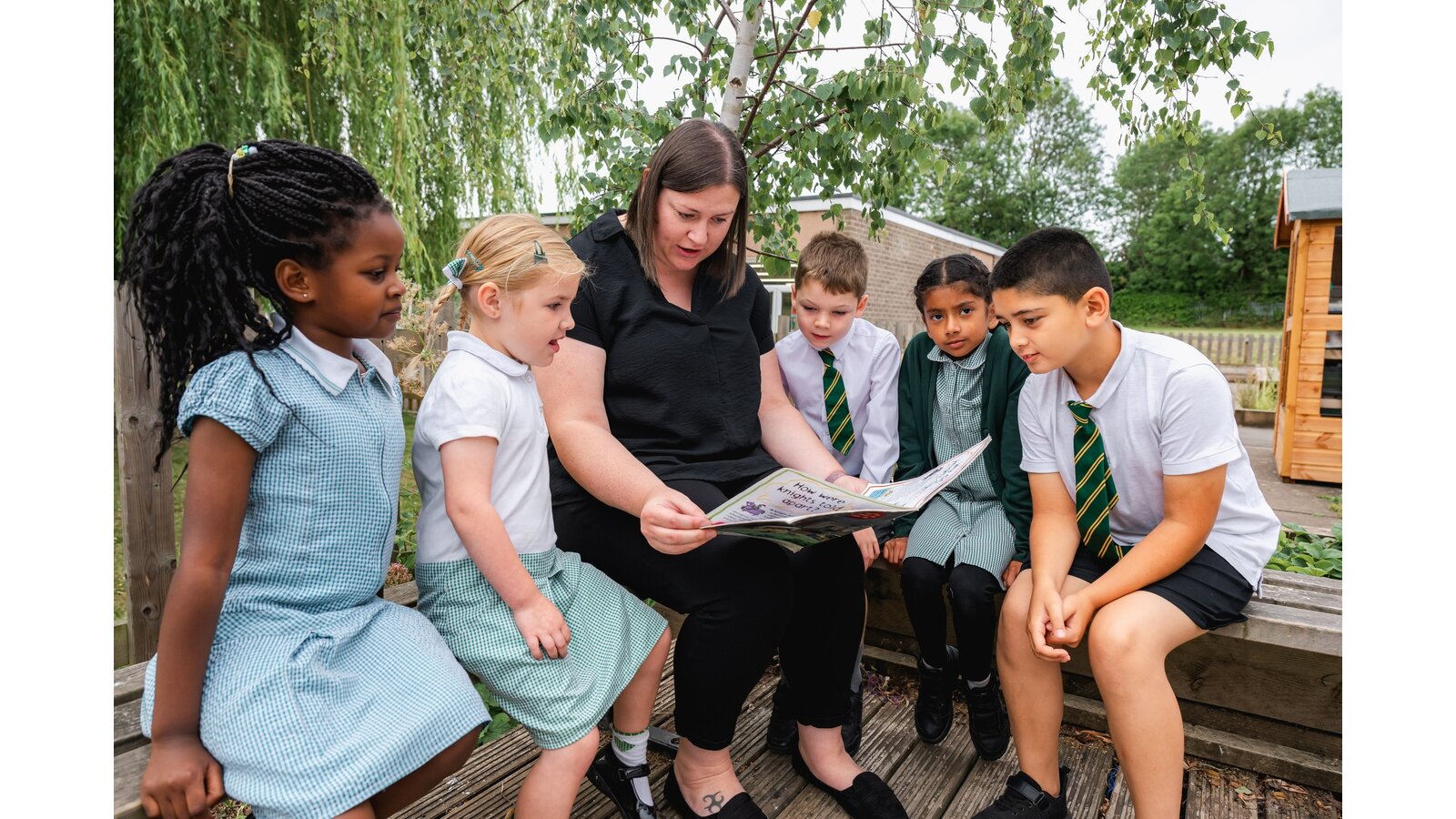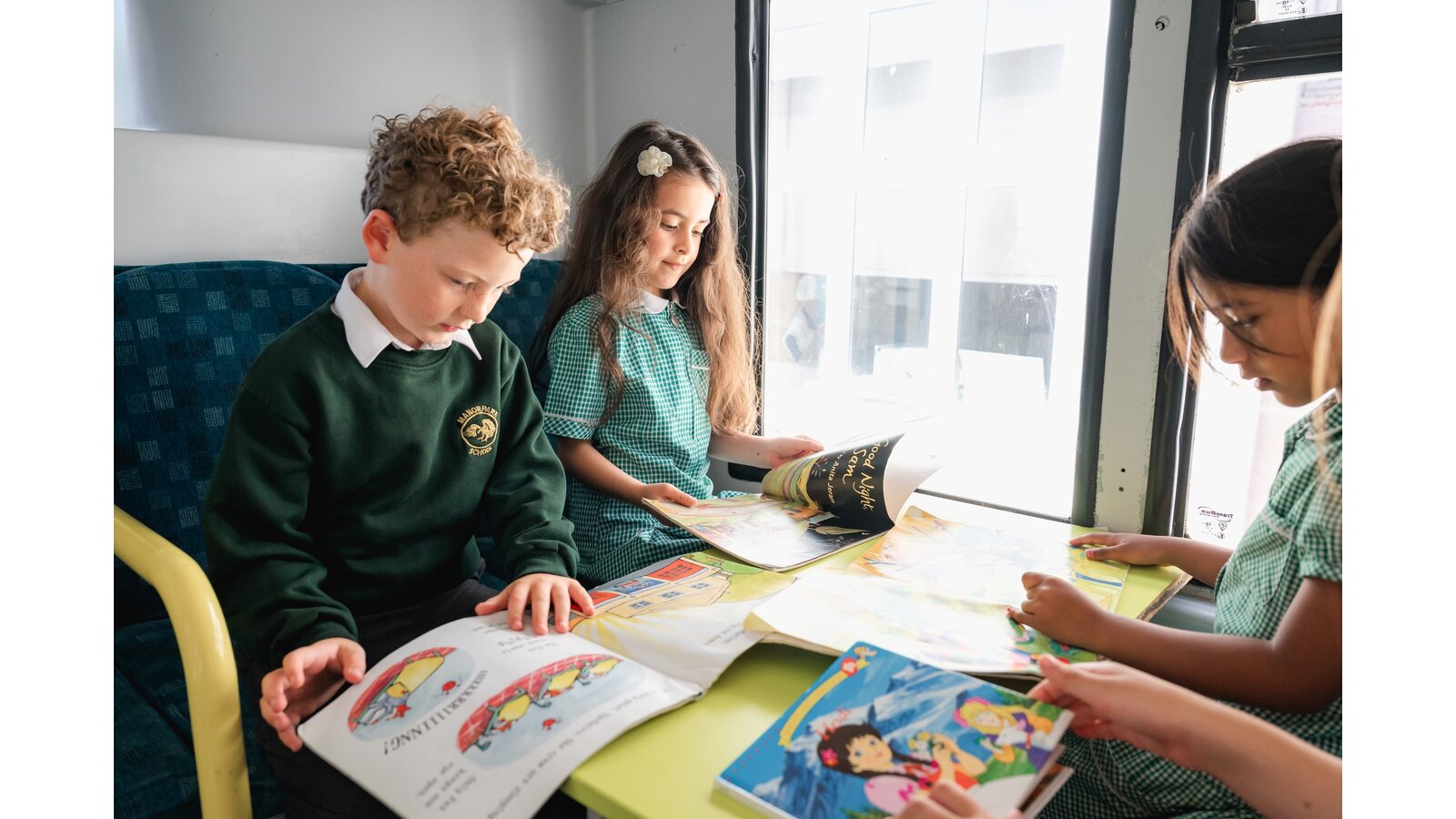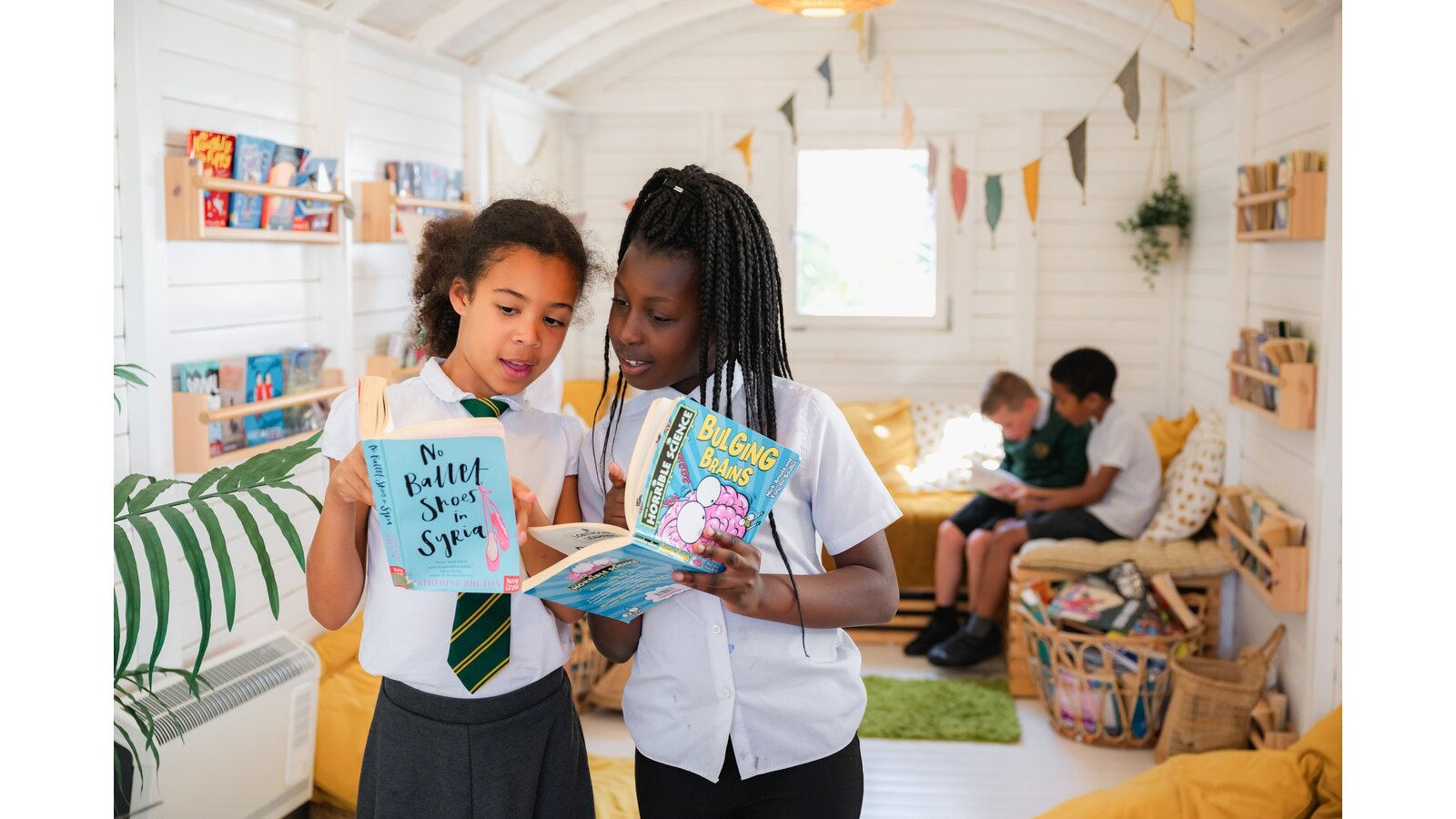

The Government strongly recommend the use of synthetic phonics when teaching early literacy skills to children. Synthetic phonics is simply the ability to convert a letter or letter group into sounds that are then blended together into a word.
At Manor Park Primary School, we use the Read Write Inc (RWI) programme to get children off to a flying start with their reading. RWI is a method of learning based upon letter sounds and phonics, and we use it to aid children in their reading and spelling.
Children in Reception, Year 1 and Year 2 have a daily phonics speed sounds lesson, followed by a reading lesson, using a RWInc storybook, which is closely matched to phonic ability. Children work through the programme and make rapid progress in their reading. They are assessed and grouped regularly according to their current ability.
The RWI programme is split into three sets of sounds. Please see the appropriate page on the right to find further information and resources.
Useful websites
Read Write Inc - For more information and ideas for supporting your child, visit the RWI website
Oxford Owl - Visit the Oxford Owl website which has over 100 free Ebooks for to enjoy with your child
Family Learning: Phonics Games - Phonics games will help your child to practise sounding out words, which will help them to read
 At Manor Park Primary School we firmly believe that igniting the love of reading and ensuring that every child becomes an excellent reader is of paramount importance. Life chances are undoubtedly improved by becoming a competent and skilled reader; it is therefore our fundamental responsibility as a school community to ensure we provide a rich cultural, emotional and diverse reading curriculum and environment within which every child thrives and progresses rapidly, regardless of their background, needs or abilities. All pupils are immersed in a wealth of books from different genres, authors and cultures and our school environment reflects our dedicated passion towards reading. We aim to ensure that every child leaves us as confident, fluent and passionate readers, we know that this will unlock all other areas of learning and empower the children throughout the rest of their education and later in life.
At Manor Park Primary School we firmly believe that igniting the love of reading and ensuring that every child becomes an excellent reader is of paramount importance. Life chances are undoubtedly improved by becoming a competent and skilled reader; it is therefore our fundamental responsibility as a school community to ensure we provide a rich cultural, emotional and diverse reading curriculum and environment within which every child thrives and progresses rapidly, regardless of their background, needs or abilities. All pupils are immersed in a wealth of books from different genres, authors and cultures and our school environment reflects our dedicated passion towards reading. We aim to ensure that every child leaves us as confident, fluent and passionate readers, we know that this will unlock all other areas of learning and empower the children throughout the rest of their education and later in life.
Early reading in EYFS
At Manor Park Primary School we firmly believe that igniting the love of reading and ensuring that every child becomes an excellent reader is of paramount importance.
Class reading
In Reception and Year 1 we use RWInc daily to teach reading. During the Summer Term, Year 1 pupils will take the Year 1 Phonics Check. When children commence Year 2, the vast majority of them will have completed the RWInc programme, any children that haven't will receive daily phonics reading sessions and in Year 3 fast track tuition which gives intensive, targeted support to address specific gaps in a child's reading in order for them to make rapid progress.
From Year 2 onwards, children will continue to embed all their phonic knowledge and will be able to decipher unknown words with confidence. Comprehension skills linked to the key reading domains are explicitly taught through whole class reading:
- Vocabulary (and grammar – linguistic knowledge)
- Retrieval
- Prediction
- Inference
- Explanation
- Summarising

Children hear, share and discuss a range of exciting, high quality and diverse texts, across a range of genres, which link to our creative curriculum topic. The chosen text is a stimulus at the beginning of a writing learning journey in English and an opportunity to focus on learning a range of rich, new vocabulary in the first lesson of the reading sequence. This vocabulary can be applied and used later in writing lessons. Green decodable words and red tricky words are still identified and read in lesson 1, coupled with exploring word meanings. Paired reading continues throughout the school, following the RWInc methodology in order to support successful reading and fluency. This is followed by a succession of lessons that focus on building comprehension skills. As children broaden their reading, they begin reading a range of age appropriate stage books and have access to a vast Oxford Owl e-book library to support reading at home. When we assess the children to have developed sufficient comprehension skills, they then commence our Accelerated Reader programme, where high quality reading practice develops and fuels growth: skills are honed whilst reading quizzes monitor comprehension and literacy skills and vocabulary quizzes extend children’s learning and build mastery.
Reading for Pleasure (Accelerated Reader)

We believe that the use of Accelerated Reader (AR) provides children with an ownership of their learning, an appropriate level of challenge and deeper engagement in their reading journeys. Working alongside teacher’s judgements and assessments, Accelerated Reader helps us to manage and monitor children’s independent reading practice. Children pick a book at their own level and read it at their own pace. When finished, children take a short quiz on the computer. Accelerated Reader then gives feedback based on the quiz results, which the teacher then uses to help your child set goals and direct ongoing reading practice.
We have a very wide selection of books, across a range of genres, located throughout the school and in classrooms. You will also find that many of the children’s books at home can be found on AR as there are quizzes on more than 200,000 books, ensuring children never run out of choices. Use this link to check whether a book is part of the AR scheme: www.arbookfind.co.uk
As a result of completing the AR quizzes, children can earn points, which lead to certification levels. We love to celebrate their reading successes by handing out certificates and running competitions to further encourage reading.
'There are lots of different genres on AR. I love adventure, crime and mystery books the most. I love that there is a whole section of these books that I can choose from.' Summah
‘AR is really fun as you get to quiz after you have read a book and you can see how you are doing. Every half-term we take a star test which decides your level and which books you can choose next time.’ Lara
‘AR is a fun way to quiz on every book that you have read. There are lots of different genres and authors so there is always a book there for you to choose.’ Noah
‘I didn’t used to enjoy reading but AR is a fun way to read lots of different books. You get to take quizzes and compete with your friends to become a reading millionaire.’ Oll
Our environment
Children have the perfect reading environment within which to flourish here at Manor Park! We have a fun double decker reading bus for EYFS and KS1 and fabulous caravans for KS2, which are fully stocked with a range of fiction, non-fiction and poetry for the children to access. As well as this, we have an array of areas around the school, devoted to reading and which support children selecting their own reading books for Accelerated Reader, reading for pleasure and for research. These wonderful libraries are open at lunchtimes and the children often enjoy getting lost inside one of our marvellous books. Children can borrow books each week to both read at school and to share at home. Each classroom has a selection of well-chosen books which the children are able to enjoy and which enhance the children’s learning.
Useful websites

At Manor Park Primary School, writing is taught through text based units, which allows the children to become fully immersed within a book and explore the language, structure and writing techniques used by the author. These are then used to influence their own writing.
At least one text is studied each half-term and used to create a wide genre of writing opportunities. Children are exposed to a range of fiction and non-fiction texts, including visual and classic texts, as well as poetry, this helps children to utilise and embed their writing skills for different purposes.
Please see our school writing overview, which details the texts each year group will read and the associated genre of writing. These genres are re-visited many times during a child's time at Manor Park Primary School with an age-appropriate set of criteria each time. This means that children become very familiar with these text types but learn how to improve and use a wider range of genre specific skills each time.
Children in Early Years are taught spelling through our phonics scheme, Read Write Inc.

The Government strongly recommend the use of synthetic phonics when teaching early literacy skills to children. Synthetic phonics is simply the ability to convert a letter or letter group into sounds that are then blended together into a word.
At Manor Park Primary School, we use the Read Write Inc (RWI) programme to get children off to a flying start with their reading. RWI is a method of learning based upon letter sounds and phonics, and we use it to aid children in their reading and spelling.
Children in Reception, Year 1 and Year 2 have a daily phonics speed sounds lesson, followed by a reading lesson, using a RWInc storybook, which is closely matched to phonic ability. Children work through the programme and make rapid progress in their reading. They are assessed and grouped regularly according to their current ability.
The RWI programme is split into three sets of sounds. Please see the appropriate page on the right to find further information and resources.
Useful websites
Read Write Inc - For more information and ideas for supporting your child, visit the RWI website
Oxford Owl - Visit the Oxford Owl website which has over 100 free Ebooks for to enjoy with your child
Family Learning: Phonics Games - Phonics games will help your child to practise sounding out words, which will help them to read
Initially, Children in Key Stage One are taught spelling through our phonics scheme, Read Write Inc. Please see Read, Write Inc tab for more information.
Once children in Key Stage 1 have completed the Read Write Inc programmes, they will move on to daily spelling sessions. These sessions teach the spelling objectives prescribed for each year group and consolidate the good phonic knowledge taught by the Read Write Inc phonics programme.
Daily spelling sessions take place in Key Stage 2. These sessions teach the spelling objectives prescribed for each year group. The focus for these sessions is to review, teach, practice and apply taught spelling patterns in a fun and creative way to allow pupils to apply these in their writing.
In KS2 we also teach Grammar skills through discrete SPAG lessons at the beginning of each unit and during our daily SPAG starters (see examples below) which provide a range of spelling, punctuation and grammar questions.


Each week, children in Year 2 – 6 are sent home with spellings to practise. These spellings contain the spelling rule the children have been learning and embedding daily in school.
Children will be tested each week on these spellings and can practise at home through Spelling Shed. Spelling Shed helps children to practise and learn their spellings via a simple game. The game gives four different degrees of support in the form of difficulty modes: Easy, Medium, Hard and Extreme. Higher levels allow a higher score to be achieved but children can practise as much as they like on lower levels before trying to gain high scores. Spelling Shed allows the children to practise their weekly spellings in a fun and engaging way.
Each class will be set a list of words that children should practise each week and class teachers will monitor their progress. Spellings will also be put on seesaw to be practised and paper copies will be given to those children who need them. Children can access the online game via https://www.edshed.com/en-gb/login
The website can be accessed via the internet using a laptop or tablet for free, or via an app. You do not need to download the app as children can complete everything they need using the online version. For more information, please see our parent guide below.
At Manor Park Primary School, we teach joined handwriting. Initially, the aim is to ensure that all children are able to form letters correctly. Once children are forming letters clearly and accurately, we begin to focus on making accurate joins, ensuring that writing is legible and all lettering is formed at the correct size.This is consolidated and built upon throughout Key Stage 2 so that children develop their own, joined handwriting style.
In EYFS and KS1, we follow the Read Write Inc handwriting programme, which makes the physical process of writing – handwriting – enjoyable from the start, so children see themselves as ‘writers’. We use mnemonics – memory pictures – to help children visualise the letter or join before they write it down (see below). Children practise handwriting under the guidance of a teacher or learning support assistant so that they do not develop habits that will be difficult to undo later.
We stress the importance of handwriting position and pencil grip and refer to this during all lessons.
Below are useful images to show how we teach handwriting at Manor Park.



Bitesize pages
BBC Bitesize is a fantastic website for all areas of the curriculum. Please find below links for spelling and grammar for all ages.
Other websites
Oxford Owl - Spelling advice for parents
